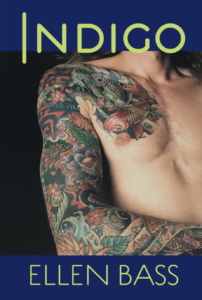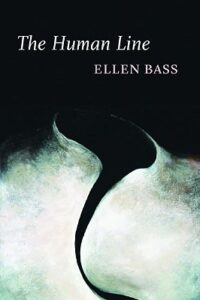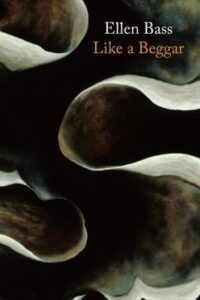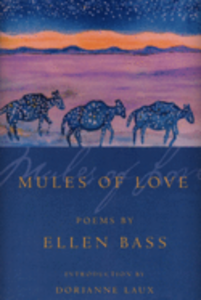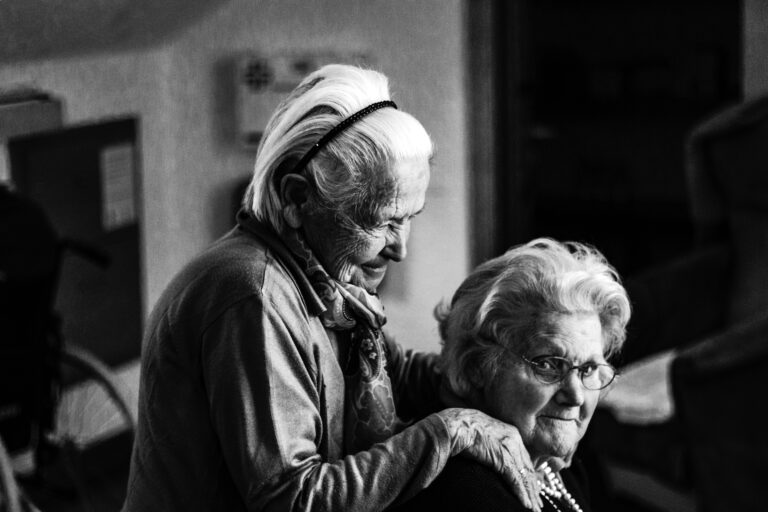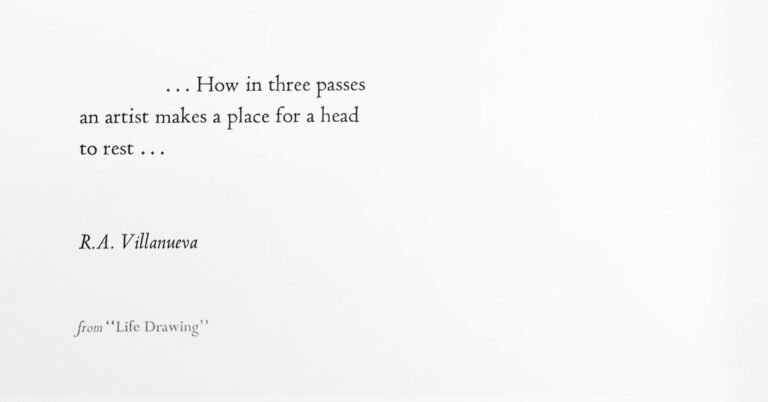Ellen Bass
Bone of My Bone and Flesh of My Flesh
What pet names have you been called? What are the circumstances and stories behind these pet names?
In this poem, a woman considers the pet names to give her female partner; “My beloved” isn’t very convenient when you’re dropping off dry cleaning. And what word to use when speaking of how she annoys you? Written in the time before same-sex marriage was legalized in the U.S., the humor of this poem highlights how policy can steal language from the everyday.
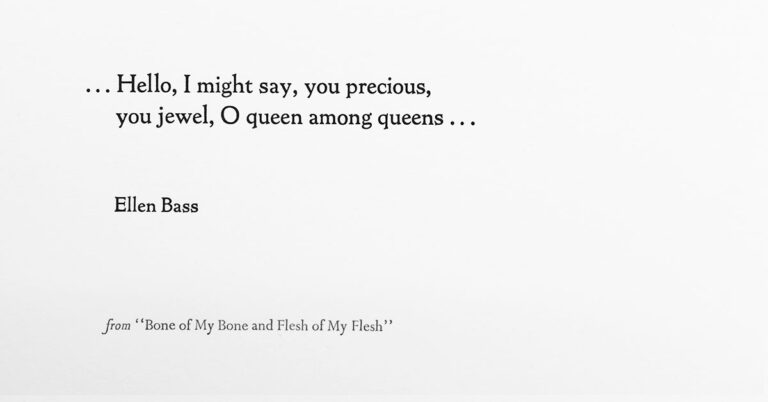
Image by Expedition Press/Expedition Press, © All Rights Reserved.
Guest
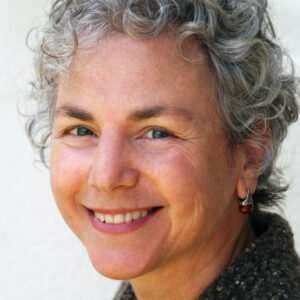
Ellen Bass is chancellor of the Academy of American Poets and teaches at Pacific University. Her poems regularly appear in The New Yorker, American Poetry Review, and many other journals. In 1973, she co-edited the first major anthology of women’s poetry, No More Masks! and in 1988 co-wrote The Courage to Heal: A Guide for Women Survivors of Child Sexual Abuse. Her most recent book is Indigo.
Transcript
Pádraig Ó Tuama, host: My name is Pádraig Ó Tuama, and poetry is a strange thing. It often is a private act, written alone. But yet, it’s written for the possibility of being read or recited in public. And so poetry asks us to make public what is very private. And what is a more worthy thing for both private and public attention than love? Poetry invites us to make public the deep loves of our lives.
[music: “Outstretched Hand” by Gautam Srikishan]
Ó Tuama: “Bone of My Bone and Flesh of My Flesh” by Ellen Bass:
“I can’t always refer to the woman I love,
my children’s other mother,
as my darling, my beloved,
sugar in my bowl. No.
I need a common, utilitarian word
that calls no more attention to itself
than nouns like grass, bread, house.
The terms husband and wife are perfect for that.
Hassling with PG&E
or dropping off dry cleaning,
you don’t want to say,
The light of my life doesn’t like starch.
Don’t suggest spouse—a hideous word.
And partner is sterile as a boardroom.
Couldn’t we afford a term
for the woman who carried that girl in her arms
when she was still all promise,
that boy curled inside her womb?
And today, when I go to kiss her
and she says, “Not now, I’m reading,”
still she deserves a syllable or two—if only
so I can express how furious
she makes me. But
maybe it’s better this way —
no puny pencil stub of a word.
Maybe these are exactly the times
to drag out the whole galaxy
of endearments: Buttercup,
I should say, lambkin, mon petit chou.
Set down War and Peace,
just for a moment, and lift
your ruby lips to mine.
And talking to the dishwasher repairman,
the vacuum cleaner salesclerk, the woman
in the Blue Cross billing department
I could explain that I’d already sent the co-pay
for my soulmate, my duckling,
my chocolate-covered cream puff.
Maybe it would lighten [sic] her day, too.
Hello, I might say, you precious,
you jewel, O queen among queens,
darling, honey pie, angel,
my sweet patootie.”
[music: “The Sweet Hots” by Blue Dot Sessions]
Ó Tuama: I think this poem presents the realization that language to refer to people who are in partnerships with each other is, on the one hand, functional, so that you can talk to somebody at the end of the phone line and say, “No, no, it wasn’t me. It was my wife, or my husband,” in a way that that’s going to make sense. And so there’s the functionality of that. And yet, this poem also highlights the fact that even functionalities need to be sufficient to recognize love in public.
And I think that is so brilliant, the way that this poem continues to turn over the possibilities that language holds, in order to say, let’s search for something that works. And then it expands beyond it, too, because in the last verse of the poem, we’re thinking of the woman in the Blue Cross billing department, and the speaker of the poem is speaking to her, and it’s suggesting that it would brighten this woman’s day, too. And “Hello, I might say, you precious, / you jewel, O queen among queens.”
And who is the speaker speaking to here? Is it about her wife, or is it about the woman in the Blue Cross billing department? Or is it about every woman? Is this a poem about affection and love and language between people who might not be lovers, but who need a bit of love in their life, in the way that we speak to each other? So this poem’s final moment, really, turns towards the world and asks the possibility of what would it be like, if our language towards each other was filled with the deliciousness and playfulness that this kind of language implies from the poem?
[music: “Outstretched Hand” by Gautam Srikishan]
Ó Tuama: “Bone of My Bone and Flesh of My Flesh” is a biblical term that you see in the Garden of Eden. It’s what Adam says the first time that he sees Eve, in the second chapter of the book of Genesis, “bone of my bone and flesh of my flesh.” And later on two men say it to each other, when one meets an uncle for the first time. So it is a recognition of shared humanity, it’s a recognition of love; it can mean something erotic, as well as mean something familial. It’s a beautiful title.
This poem is political. It was published in Ellen Bass’s book The Human Line, published in 2007. And that was before the Supreme Court had validated equal marriage across all the states of the USA, and possibly before many individual states had done so, too. And as a lesbian, Ellen Bass’s relationship would not have received acknowledgement or safety, and you might have been up to the individual responses of a particular person on the other end of a phone line, whether that’s for insurance or for getting a piece of equipment fixed in the home, or any way that you’re dealing with a professional. How do you make easy reference to your partner, your wife, your spouse, however you want to name that? And there’s politics in the public recognition of this.
I think there’s defiance in this poem, too. And part of the defiance is saying that for everyone, perhaps more presence of more loving words could be used. And she’s saying that maybe the absence of the pencil stub of the word “husband” or “wife” — I suppose she’s indicating “or wife,” particularly — the absence of that pencil stub of the word is a good thing to work with. And I think she’s also asserting, maybe we don’t need whatever equal marriage looks like; to fit in with an inherited version about what marriage looks like. Maybe we can define what love looks like in public and, in so doing, in declaring it to the woman in the Blue Cross billing department, it would be a joy and a declaration, as well as a question of, “Are you loved like this?” and that the gift of equal marriage for an entire society is exactly that: the public recognition of these relationships is a gift to the entire society, because it elevates the question about what love looks like in public and elevates the answer in the lived experience of couples who have been full of love and faithfulness and life towards each other.
[music: “At Dusk” by Gautam Srikishan]
Ó Tuama: I think that the line where Ellen Bass’s wife — certainly, she doesn’t want her to be called partner or spouse, but her wife, her duckling — replies, “Not now, I’m reading,” shows the ordinariness of long-term love and the kind of things we say to each other when we’re in long-term relationships. And it shows the ways within which this is the level of love that we’re speaking about. People have been with each other long enough that that’s the ordinary thing and the way that we can talk to each other; and then the frustration and fury that we can have towards people who we love from the depth of our heart, too. And I think that is a beautiful piece of humor within it. And I think, suddenly, lots of couples who’ve been together a long time will recognize that in the midst of loving each other deeply, there can be everyday furies that we also curate in ourselves.
Often enough, I’ll call Paul “grá mo chroí,” which is Irish for “love of my heart.” Or you can say, “chuisle mo chroí,” as well, which means “pulse of my heart.” And I love how language presents poetic opportunities for ways of speaking towards each other. I have regularly been in situations where somebody might be speaking to me and might say something like, “And will your, um, friend be coming along?” Now, I love the word “friend,” and I love my friends. But it’s such a piece of power, for my partner to be called my friend by somebody who won’t acknowledge it. And that suddenly becomes very powerful.
And I think this poem is circling around that very powerful recognition of the public acknowledgement and validation that people love each other. Whether they’re in a formally recognized, politically acknowledged marriage or not, the recognition of that relationship is vital. And so many of us are used to that relationship being castigated. I was going to say “demoted,” but friendship is not a demotion. Hopefully within the context of loving relationships, we’re friends, also. But to just call your lover your friend is a way of taming it into something that makes sense for someone else, but actually denies the reality, for many people.
[music: “Memoriam” by Gautam Srikishan]
Ó Tuama: I looked up other terms of endearments in other language, and “ghazaal,” in Arabic, means “my gazelle” — beautiful. And we hear some French in the poem, “mon petit chou,” which means “my little cabbage.” German has a lovely one, called “mausebär,” meaning “mouse-bear,” a lovely combination of something small and something big at the same time. And I think, in Spanish, people say, “mi cielito” — “my sky” or “my heaven.” So many languages have beautiful ways of speaking towards each other. In French, you can also call a person that you love dearly “my flea.” There’s all kinds of explanations about that, but I think I like the fact that it’s strange, and sometimes we turn to strange things to express our love for each other — “my duckling,” for instance, or “my honey pie.”
Some languages turn to something magnificent, and other languages turn to something really, really small. And it’s interesting to see how different languages do that.
I think this poem invites us to think about the power of language and how language can serve to silence or to eradicate or to erase or deny, or to elevate and acknowledge. And even within those denials, people survive with defiance, and they can raise language to an even better level of acknowledgement and public celebration about what love looks like, especially when that love and that dignity has been denied.
Ó Tuama: “Bone of My Bone and Flesh of My Flesh” by Ellen Bass:
“I can’t always refer to the woman I love,
my children’s other mother,
as my darling, my beloved,
sugar in my bowl. No.
I need a common, utilitarian word
that calls no more attention to itself
than nouns like grass, bread, house.
The terms husband and wife are perfect for that.
Hassling with PG&E
or dropping off dry cleaning,
you don’t want to say,
The light of my life doesn’t like starch.
Don’t suggest spouse—a hideous word.
And partner is sterile as a boardroom.
Couldn’t we afford a term
for the woman who carried that girl in her arms
when she was still all promise,
that boy curled inside her womb?
And today, when I go to kiss her
and she says, “Not now, I’m reading,”
still she deserves a syllable or two—if only
so I can express how furious
she makes me. But
maybe it’s better this way —
no puny pencil stub of a word.
Maybe these are exactly the times
to drag out the whole galaxy
of endearments: Buttercup,
I should say, lambkin, mon petit chou.
Set down War and Peace,
just for a moment, and lift
your ruby lips to mine.
And talking to the dishwasher repairman,
the vacuum cleaner salesclerk, the woman
in the Blue Cross billing department
I could explain that I’d already sent the co-pay
for my soulmate, my duckling,
my chocolate-covered cream puff.
Maybe it would brighten her day, too.
Hello, I might say, you precious,
you jewel, O queen among queens,
darling, honey pie, angel,
my sweet patootie.”
[music: “Praise the Rain” by Gautam Srikishan]
Lily Percy: “Bone of my Bone and Flesh of my Flesh” comes from Ellen Bass’ book, The Human Line. Thank you to the Permissions Company, on behalf of Copper Canyon Press, who gave us permission to use Ellen’s poem. You can find a link to the poem in our show notes, along with Pádraig’s guiding question for this episode.
Poetry Unbound is Chris Heagle, Erin Colasacco, Serri Graslie, Eddie Gonzalez, Lilian Vo, Christiane Wartell, Karen Navarre, Karyn Towey, Sue Ariza, and me, Lily Percy. Our music is composed and provided by Gautam Srikishan and Blue Dot Sessions. This podcast is produced by On Being Studios, which is located on Dakota land. We also produce other podcasts you might enjoy, like On Being with Krista Tippett, Becoming Wise, and This Movie Changed Me — find those wherever you like to listen or visit us at onbeing.org to find out more.
Books & Music
Recommended Reading
The On Being Project is an affiliate partner of Bookshop.org and Amazon.com. Any earnings we receive through these affiliate partnerships go into directly supporting The On Being Project.





